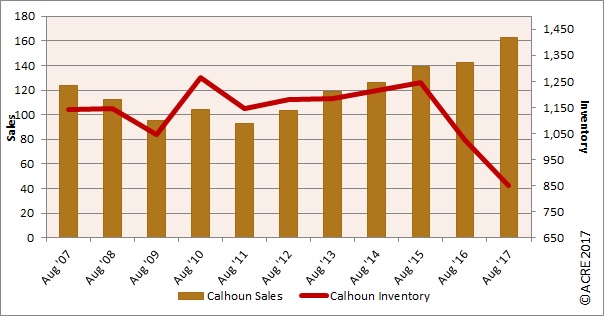On September 25, 2017 / Home Buying Tags:
buying a home,
commute,
deal breakers,
first time home buyer,
fixer upper,
floor plan,
homeownership costs,
house hunting,
neighbors,
schools,
turnkey homes By: Wendy Helfenbaum
Every successful home search begins with a wish list. Armed with your inventory of must-haves, you’ll know how to focus your search and recognize a potential home that isn’t worth your time.
Still, there’s a strange thing that seems to happen when you’re deep in the trenches of house hunting: The more you look, the longer that wish list seems to grow. But sooner or later, you have to own up to the fact that you can’t have everything—it’s inevitable that you’ll make some compromises somewhere.
And, in these days of tight inventory and cutthroat competition from other buyers, you might feel forced to waver far afield from your hallowed wish list in order to land a home.
That’s OK—it’s important to be flexible. But there are a few times when you absolutely should draw the line. Here are seven areas where you’ll want to dig in your heels.
1. Buying a fixer-upper when you really want turnkey
You have never swung a hammer, have a phobia of power tools, and always pictured yourself in something new and shiny. But that doesn’t mean you won’t fall in love with a charming, century-old farmhouse that needs a ton of work. Now’s when you have to decide: Are you up to the financial and emotional challenges of taking on major renovations?
It’s an option you should seriously consider (with the help of an experienced general contractor) if you’re in a highly competitive market. But if you don’t think your bank account or your marriage could survive many months of upheaval, stick to your guns and insist on a turnkey home, says Mike Kessler, a broker with TSG Residential, in Davidson, NC.
“There have been times when I’ve said to clients, ‘after being with you for a week, I really think we need to look at new construction,'” Kessler says. Many of those clients, he adds, were later grateful for the course correction, saying, “We would never have been able to enjoy ourselves in [an older] house.”
2. A good school district
Even if you don’t have children, you should make sure the house you’re eyeing has desirable schools nearby, says Tina Maraj, a Realtor® with Re/Max North Orange County in Fullerton, CA.
Does it matter if you’re not looking to have a few kids? Well, things can always change. But even if they don’t, good schools typically translate to a higher resale value—potential buyers with families will want to be in the right district.
Just make sure to do your research and determine where the home sits in relation to the school district boundaries.
“Often agents will advertise a property as being near such-and-such school area, but not necessarily specify the district, which can be very confusing,” Maraj explains. “It can be a real eye-opener if a buyer closes and they’re on one side of a main street that is the dividing line between the top-rated and the lowest-rated high schools.”
Go to the school district’s website to get a map of the district boundaries.
3. The floor plan
Does the home fit your minimum criteria in terms of number of rooms and the flow of the main living areas? If not, cross it off your list, says Sarah Garza, a Realtor and military relocation specialist with Trident Homes Realty in Arnold, MD.
Garza can share some personal cautionary tales: A military spouse, she’s moved 12 times in the past 20 years, buying and selling nine homes in the process.
“I regret that I compromised on layout in the past,” she says. “When I really needed four bedrooms, I’ve gone to three and then wished I hadn’t.”
Sure, you can add on. But don’t use that option as a fallback, Maraj warns.
“You can change a layout to make it an open floor plan, but it’s a lot more difficult to change the bedroom and bathroom count,” she says. “In the long run, you could end up having a lot of problems and taking on a really big financial undertaking.”
4. The neighbors
During your search, don’t just focus on the house you’re interested in—check out the neighboring homes as well, Maraj says. Are the properties well-kept, or candidates for an episode of “Hoarders”?
The condition of the properties around you can affect your future resale value. And they can just plain drive you crazy. Make sure you look—and listen—any time you visit your prospective home.
“You can’t change the house in front of you or to the side of you,” Maraj cautions. “And if there’s a barking dog every time you’re viewing the property, that’s another thing that you absolutely cannot change.”
5. Your budget
You’ve probably already determined how much you’re willing to pay for a home—and you shouldn’t budge on that number. But you should also dig in your heels on the additional costs beyond the sticker price. That means setting a budget for your monthly payments, HOA dues, utility costs, and real estate taxes—and sticking to it. (Hint: You want to do this before you start looking at homes, and definitely before you start making offers.)
Yes, a lender will give you a pre-approval and tell you how much house you can afford. But this is just one piece of the puzzle, and the costs of homeownership can still land you in a mountain of debt if you’re not careful, Kessler points out.
“I try to do a lot of pre-planning with clients about what can they really afford, as opposed to what the bank tells you,” Kessler says. “You never want to be house poor.”
6. Commute time
If you’ve already determined that you’re willing to take on a 30-minute commute, don’t allow yourself to be swayed into anything longer, Garza says.
“Sometimes buyers fall in love with all the shiny bells and whistles of a house that’s an hour away from work, and want to compromise on what they’ve told me from the beginning,” she notes. “I tell them, ‘I know it doesn’t matter right now because you really love this house, but that’s two hours every day that you’ll be sitting in the car and not enjoying your house. Is that worth it to you?’”
She adds: Until you’ve actually driven the route to and from your potential home and your office, at the times you’ll be commuting, you should never consider compromising.
In some large cities, being just a few miles from the highway can tack on an additional hour of commuting. Could you handle that after a long day in the office? Think carefully before making the sacrifice.
7. Parking
Speaking of your car, if you own one (or two), you absolutely want a guaranteed spot to park, whether that means an enclosed garage, a driveway, or assigned parking.
“There are many communities that now restrict outside parking, guest spaces, and overnight parking, which could be a real homeowner nightmare if you have to fend for yourself,” Maraj says.
To avoid frustration after you’ve closed a deal, stick to your guns about the things that are most important to you while making your choice, and ignore the rest of the noise.







